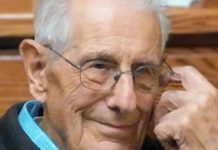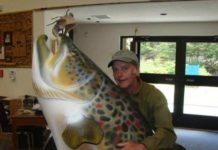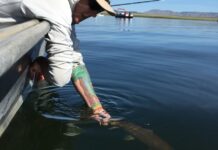It was a Tuesday in early November when Tehachapi resident Pam Brailey learned she had breast cancer.
She wasn’t sure what to expect when she arrived days later for her first appointment at AIS Cancer Center in downtown Bakersfield.
“I was still in shock when I walked through that door,” she remembered nearly a year later.
Then she met Nurse Jacqui.
As the nurse navigator at AIS’ Breast Center, Jacqueline Engstrand’s job is to guide patients through the sometimes confusing, sometimes scary, maze of exams, blood screens, tech scans, procedures, prescriptions, instructions and emotions many patients must, in essence, navigate, as they embark upon a journey to save their own lives.
On that first day, Engstrand presented Brailey with a binder filled with information, including the business cards of several doctors and other medical professionals at AIS who would be helping her along the way. It was the beginning of a roadmap she would follow through months of treatment, including surgery, chemotherapy and more.
“It’s quite overwhelming,” Brailey said, looking back at the early days of her journey.
But as time passed, she began to feel that she didn’t have to think about it all the time anymore. Someone else had her back, a blonde with a British accent who had somehow found her way to Bakersfield from a small village
“Through it all, I had the confidence Nurse Jacqui would be there to help me,” she said.
The cancer center is filled with caring, competent health care professionals who work as a team, said Brailey, who praised the doctors and staff. Engstrand doesn’t do it alone.
But Nurse Jacqui provides a special kind of lifeline between patient and care.
“She was always just an email away,” Brailey said.
From England to L.A. to Bakersfield
Born and raised in a rural village in the county of Worcestershire, England, not far from the city of Birmingham, young Jacqui knew from a young age what she wanted to do in her life.
“I told my family when I was 5: ‘I’m going to be a nurse,'” she remembered in her lilting British accent.
“I never wavered from that,” said Engstrand, now 57. “It’s all I ever wanted to do, and now I don’t know how to do anything else.”
Her business card carries an alphabet soup of capital letters after her name, designating a number of certifications beyond her registered nurse certification.
“Certifications for nurses are just to demonstrate to the public that you specialize in your area,” she said. “I just recently at the hospital got Clinical Nurse 4, which is regarded as a nurse expert.
“I’m a bit of an overachiever,” she said, laughing.
But it’s the skills she possesses that are not necessarily reflected on any certifications that also draw the admiration of patients and colleagues alike.
A fellow RN, Stephanie Teixeira, jokes that she often takes calls from people looking for Nurse Jacqui or the “nurse with the English accent.”
“They’ll call up and say, ‘Is Jacqui there? I’m looking for Nurse Jacqui. I couldn’t get her, so I’m calling you.'”
A significant expansion and investment the breast center is coming soon, which will triple the square footage at the center, and Teixeira will be partnering with Engstrand in the role of nurse navigator.
In the meantime, she remains appreciative of Engstrand’s star qualities.
“I don’t mind working in her shadow,” Teixeira said.
Dr. Nicole Gordon, a surgeon at the center, also extolled the virtues of nurse navigators in general and Nurse Jacqui in particular.
“They’re critical to the service,” Gordon said, noting she’s seen research that shows outcomes have improved with the introduction of nurse navigators.
“There’s data that supports that they actually improve survival, or some kind of very critical metric for breast cancer patients, especially among women — and men — who don’t have as many resources.”
Nurse navigators are there, she said, to “try to eliminate barriers to care.”
Raising awareness, getting checked
October is Breast Cancer Awareness Month, and while Engstrand understands that some get a bit tired of the idea of wearing pink all month, she believes there are tangible benefits that come from raising awareness.
“It does encourage ladies to get checked,” she said. “It does bring it to the wider audience that you don’t have to be over 70 to get breast cancer. You can be 28 and get breast cancer.”
Attitude and emotional heath matter as well. That’s why Engstrand helps monitor a private Facebook group for Kern County survivors.
She also works with breast cancer survivor and fly-fishing enthusiast and expert Teresa Adams to organize fly-fishing trips for former breast cancer patients.
It may sound counterintuitive, but it turns out local breast cancer survivors clamor for the limited reservations for the trips.
These excursions are “good for breast cancer survivors,” Engstrand said. “Because after their mastectomy or lumpectomy, and they have a little bit of pain or something in their shoulder, that whole motion of the cast, and the hand where you pull in the line” is helpful in their recovery.
“And just being in the river, and all that quiet nature,” she said. “It’s so healing for them.”
Adams called Engstrand a “go-getter,” and credited her for clarifying the details of the care she received.
“She cares,” Adams said. “That whole breast center is absolutely amazing.
“Jacqui, she’s not afraid to be a patient advocate in all areas of their treatment,” Adams said.
Some of her skills may be inherent, but others were likely honed during one of the most ignored epidemics of our time.
“I worked in the HIV (AIDS) epidemic when it was at the height of all the deaths,” Engstrand remembered.
“Even then, even with all the pain and death, she was able to find joy and purpose in the work.
“We always felt that it was better for a patient to have us in their care than to die alone,” she said.
And even with all the advances in breast cancer care, some patients will not survive.
“Is it hard some days? Yes,” Engstrand said. “Especially when you lose young ladies or young men … it’s hard, but I’m glad that they went through their journey with us holding their hand.”
Those memories, those experiences within the profound circle of intimacy between life and death, were instrumental in making her the nurse she is today.
And knowing she helped make those difficult journeys easier for her patients, it’s what she uses to get through her hardest days.
“They’re not just a person with breast cancer,” Engstrand said of her patients at AIS. “They are a whole person, and you’ve got to know the whole person.
“Their husbands or their partners or their families — they’re part of the care, too. So they all become part of our family when they come here.”
But isn’t this dangerous ground, emotionally, for a medical professional? Aren’t nurses supposed to shy away from getting too close to patients in order to avoid suffering emotional trauma?
“That’s what they teach you to do in nursing school,” she said. “But I defy any nurse to do it.”
Credit: Source link































